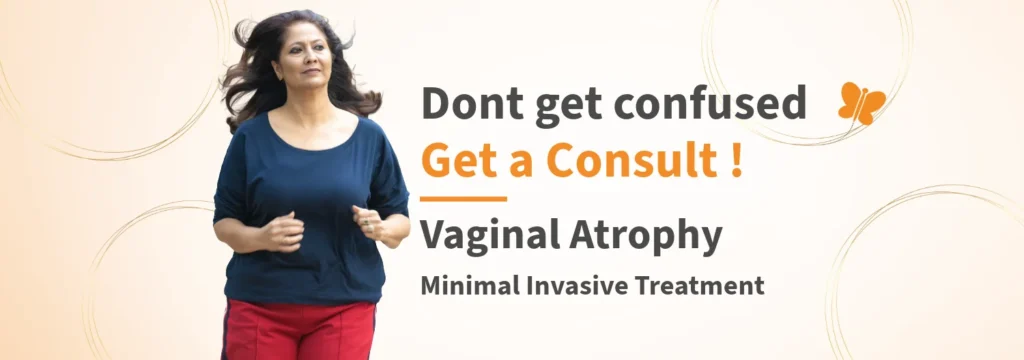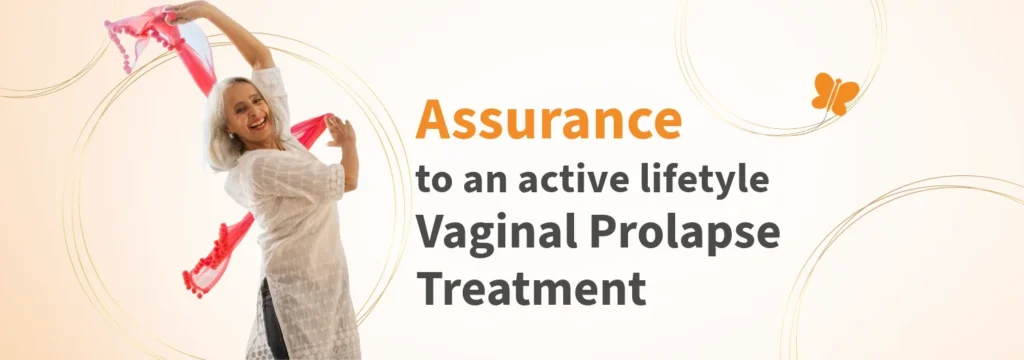

Vaginismus Demystified
Comprehensive Guide to Causes and Treatments
Vaginismus is a complex and often misunderstood condition that affects many women worldwide. This involuntary tightening of the vaginal muscles can cause significant physical and emotional distress, impacting various aspects of a woman’s life. Vaginismus is often very confusing to a woman, and this condition is not only a physical condition. A woman’s psyche plays a crucial role in Vaginismus.
What is Vaginismus ?
Vaginismus is a condition characterized by the involuntary contraction of the pelvic floor muscles surrounding the vagina. This contraction occurs when penetration of the vagina is attempted, whether during sexual intercourse, inserting a tampon/silicone cup, or during a gynaecological examination. The muscle spasm can make penetration very painful, difficult, or sometimes impossible.
Sometimes, vaginisumus may ocur even at the thought of penetration, and the perception of a potential pain. Essentially, there are two types of Vaginismus.
- Primary :It is an inherent condition in women who have never been able to have penetrative intercourse or insert anything (tampons / cups) in their vagina without pain.
- Secondary :This form occurs at a later stage in life after a woman has experienced normal sexual function. This could stem from a painful situation or memory, menopause, surgery, or more.
The nature of the condition can often lead a patient to believe that its only psychological. While it can be distressing and impact various aspects of a woman’s life, it is important to note that vaginismus is treatable with the right approach and support.
What causes Vaginismus ?
The exact cause is not always clear and can vary from person to person. Some potential causes include:
- Physical Factors:
- Previous painful sexual experiences
- Medical conditions affecting the reproductive organs
- Hormonal changes, especially during menopause
- Pelvic floor dysfunction
- Psychological Factors:
- Fear of pain during intercourse
- Anxiety about sexual activity
- History of sexual abuse or trauma
- Negative attitudes about sex, often due to cultural or religious beliefs
- Relationship Issues:
- Lack of trust or communication with a partner
- Unresolved conflicts in the relationship
- Other Medical Conditions:
- Endometriosis
- Pelvic inflammatory disease
- Urinary tract infections
- Vaginal infections
What are the Symptoms and Signs of Vaginismus ?
A woman should be aware of her body. If repeatedly, she feels that there is involuntary contraction of the vaginal canal, it is time to consider vaginismus, and consult a reconstructive & cosmetic gynaecologist. The doctor who can peacefully give time to his patients, understand the condition will be able to diagnose this condition.
The following are the main physical symptoms :
• Excessive pain during sexual intercourse
• Unsuccessful penetration
• Pain while inserting tampons
• Excessive pain during gynecological exams
How is Vaginismus diagnosed ?
A skilled reconstructive & cosmetic gynaecologist must be consulted to discuss concerns. The doctor will take a detailed patient medical history, and evaluate all possible situations that trigger such symptoms. The doctor will do a thorough pelvic examination to rule out the possibilities of other similar conditions like scars tissue, infections etc. With this, the doctor will be able to conclude the problem of vaginismus.
What is the impact of Vaginismus on a woman’s well being ?
Vaginismus can have a profound effect on a woman’s life, influencing various aspects of her physical and emotional well-being:
- Sexual Health: It can make sexual intercourse painful or impossible, leading to sexual dissatisfaction and frustration for both partners.
- Emotional Well-being: Women with vaginismus often experience feelings of inadequacy, shame, and anxiety about their condition.
- Relationship Strain: The inability to have penetrative intercourse can put significant stress on intimate relationships.
- Reproductive Challenges: It can delay or make it difficult to conceive naturally, as penetration may be impossible or extremely painful.
- Medical Care: Women with vaginismus may avoid necessary gynecological exams, potentially delaying the diagnosis of other health issues.
- Self-esteem: The condition can negatively impact a woman’s self-image and confidence.
- Mental Health: Anxiety and depression are common among women struggling with vaginismus.
- Social Isolation: Some women may withdraw from social situations or avoid romantic relationships due to their condition.
What is the Treatment for Vaginismus ?
The treatment largely depends on the triggers, severity of the condition, and most importantly, the causes.
Pelvic Floor Physical Therapy
Specialized physical therapists can help women learn how to control and relax their pelvic floor muscles. Therapy often includes exercises and biofeedback techniques to reduce muscle spasms and improve muscle control.
Behavioral Therapies
Cognitive-behavioral therapy (CBT) and other forms of counseling can be effective in addressing the psychological factors contributing to vaginismus. Therapists work with patients to overcome fear and anxiety associated with penetration.
Medical Interventions
If there are “physical” factors identified as the cause of Vaginismus, then there are medical treatments available to alleviate them.
Women can do self examination of their vagina regularly. They should evaluate the look of their vaginal opening and try to gauge if there is a physical cause of vaginismus , for eg , too small an opening or even an opening that is not visible.
Women must consult a Specialised Reconstructive and Cosmetic Gynaecologist for these physical aberrations, and discuss their concerns at length. The skilled specialist can understand the gravity of the condition after a physical examination and suggest a correction as appropriate.
In some cases, medical treatments such as muscle relaxants, topical anaesthetics, or Botox injections may be recommended to alleviate muscle spasms and reduce pain. In extreme cases, a surgical intervention may be also required. An expert reconstructive and cosmetic gynaecologist should be the only one to recommend and execute such a surgery.
Home Remedies and Self-Care
Women can also practice self-care techniques at home, such as:
- Relaxation Exercises: Deep breathing and progressive muscle relaxation can help reduce anxiety and muscle tension.
- Gradual Desensitization: Using vaginal dilators to gradually stretch the vaginal muscles can help women become more comfortable with penetration over time.
- Education and Communication: Learning more about the condition and communicating openly with partners can reduce fear and improve sexual experiences.
Many women have successfully overcome vaginismus with the right treatment and support. Sharing stories of hope and recovery can provide encouragement and motivation for others facing similar challenges. It’s important to remember that vaginismus is a treatable condition and seeking help is the first step towards recovery.
Frequently Asked Questions
Is vaginismus a rare condition?
Can vaginismus develop suddenly in a previously sexually active woman?
Is vaginismus all in my head?
Can I still get pregnant if I have vaginismus?
How long does treatment for vaginismus usually take?
Will I need to use dilators forever?
Can vaginismus affect my ability to use tampons or have pelvic exams?
Is surgery an option for treating vaginismus?
Can vaginismus go away on its own?
How can I support my partner who has vaginismus?
Vaginismus is a challenging condition that can significantly impact a woman’s quality of life. However, with proper understanding, support, and treatment, many women can overcome vaginismus and enjoy healthy, pain-free sexual experiences. If you suspect you may have vaginismus, it’s important to seek help from a healthcare provider specializing in sexual health. Remember, you’re not alone, and effective treatments are available to help you regain control of your sexual health and well-being.
It is imperative that you seek the guidance of a well trained reconstructive & cosmetic gynaecologist to understand the causes and possible course of action for your condition. Dr Navneet Magon, is a gynaecologist with over 30 years of expertise in the area of reconstructive & cosmetic gynaecology. He provides super specialised treatment plans and options at Elle Sante Clinics. The comprehensive range of solutions offered to women cover non surgical, minimal invasive and surgical options .
Discuss your queries on Vaginismus
-
+91-8811 009 900+91-8811 009 900
-
WhatsApp Us (24/7)WhatsApp Us (24/7)
Mon-Sat 10:30am to 7:30pm
Sunday Closed
-
info@ellesante.ininfo@ellesante.in
We respond within 24 hours
Contact Us
Elle Sante Range of Treatments
Elle Sante Clinics

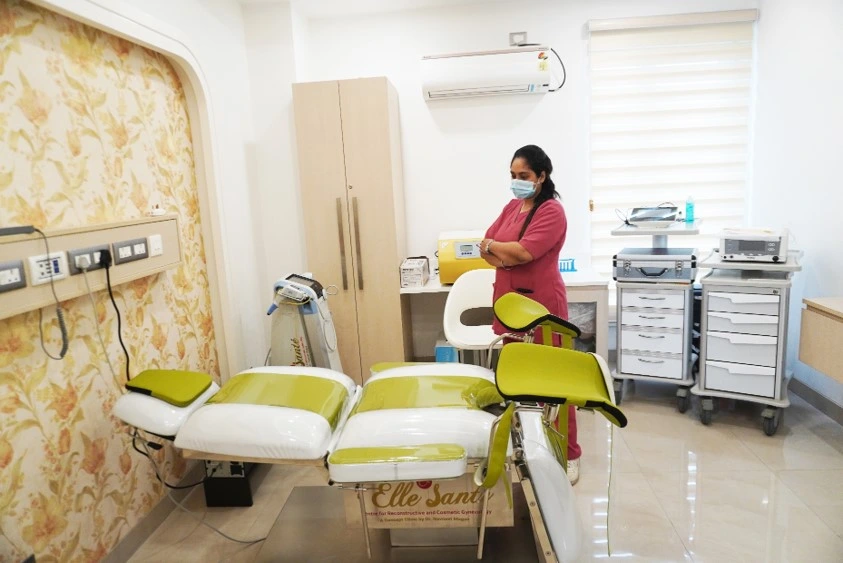
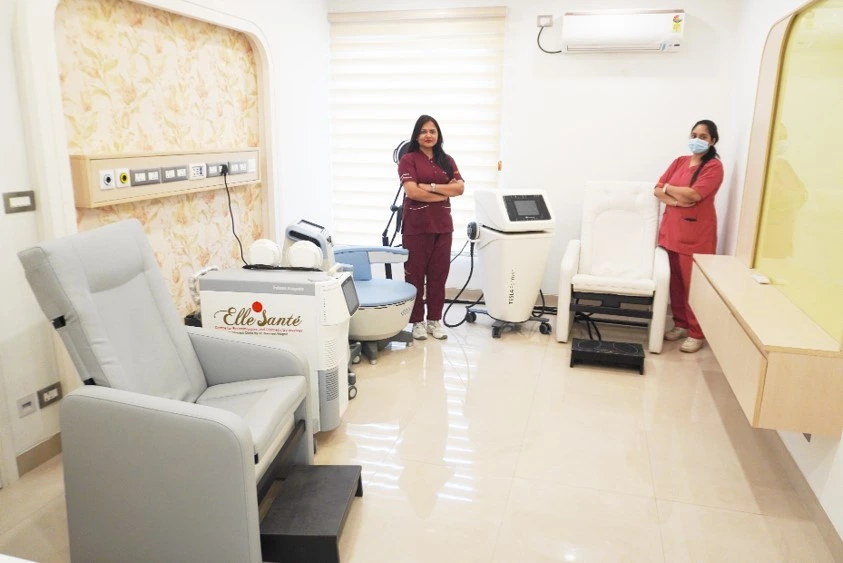
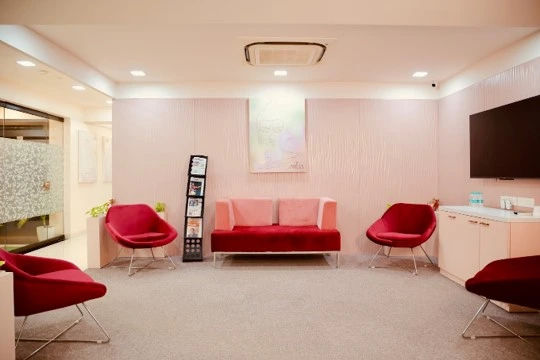
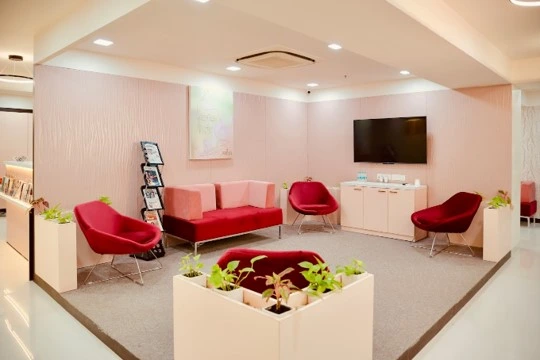


Elle Sante Gurgaon
NR – 38, Main, Nathupur Rd, DLF Phase 3, Sector 24, Gurugram, Haryana 122002
Elle Sante Mumbai
6th floor, S.M House, 11, Sahakar Rd, Vishnu Prasad Society, Navpada, Vile Parle East, Vile Parle, Mumbai, Maharashtra 400057
Elle Sante Hyderabad
C/o FMS Sculpt & Dental Hospital Door No. 8-2-293/82/A/725, Road No. 37, Hitech City Rd, nr Daspalla Hyderabad, CBI Colony, Jubilee Hills, Hyderabad, Telangana 500033
Elle Sante Visakhapatnam
Health city, Medcy Hospitals, Plot 9A, chinagadili, Arilova, Visakhapatnam, Andhra Pradesh 530040
Elle Sante Agra Pratappura Centre
Khandelwal Nursing Home, 3/27, Mahatma Gandhi Rd, khandelwal Colony, Pratap Pura, Rakabganj, Agra, Uttar Pradesh 282001
Elle Sante Rohtak
Elle Sante Nursing Home, C/o, Civil Rd, opposite Piller No. 22, HUDA Complex, Rohtak, Haryana 124001
Elle Sante Firozabad
Om Hospital and Research Centre, SN Rd, opposite PK Tiles, Devnagar, Nai Basti, Firozabad, Uttar Pradesh 283203
Elle Sante Agra
3rd Floor, Shanti Madhuban Plaza, 1/2, Delhi Gate Rd, Hariparwat, Professors Colony, Civil Lines, Agra, Uttar Pradesh 282002



